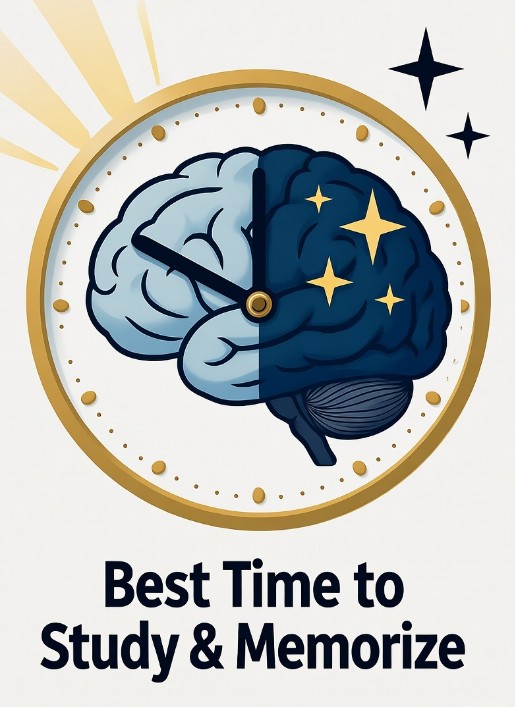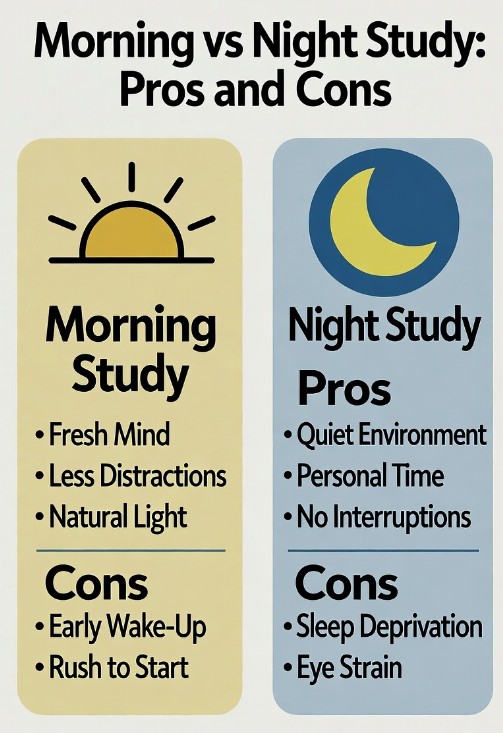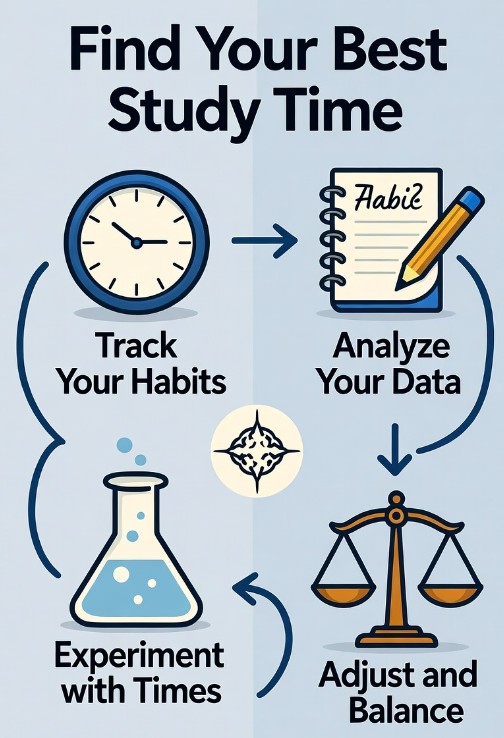
Best Time to Study and Memorize: Unleashing Your Best Learning Times
Table of Contents
Determining the best time to study can be the key to memorizing with ease, while wrong timing can provoke forgetting later. Time will dictate whether your mind encodes information easily or pushes it away. Thus, aligning study habits with natural brain rhythms can sharpen focus and improve memorization.
Why Timing Matters in Studying
During the day, your brain doesn’t work at the same level. Circadian rhythms, the body’s internal clock, govern energy and alertness. During peak productivity hours, new information within the prefrontal cortex is handled faster. Dopamine and acetylcholine neurotransmitters enhance concentration and learning. For individuals wondering how to improve short-term memory and encode data more efficiently, coordinating study with natural brain chemistry offers one of the easiest ways to enhance encoding capacity.
General Misconceptions Regarding Study Timing
One of the most enduring myths is that any time of the day is equally good for learning. But it isn’t, according to research. Mental productivity fluctuates, and the truth is that the best time to study and memorize varies for each individual. By discrediting the “study at any time” myth, students will save effort, prevent burnout, and achieve faster results.
Morning or Night: What’s Best for Study?

Early morning study hours have the plus point of a fresh, new mind. Sleeping freshens up the hippocampus, so memory sharpens. For some, it is best to study first thing in the morning when distractions are fewer, determination is greater, and energy is focused on concentration.
During evening study, however, one may accommodate creativity and full concentration. The brain can better make connections later in the day, making problem-solving or study material review possible. The disadvantage is fatigue: after a long school day or workday, attention dissipates, replaced by procrastination. To summarize, the best study time depends on the way your mind deals with energy and creativity throughout the day.
Finding Your Best Study Time

No universal rule applies to everyone. While research highlights patterns, your own cycles actually determine when you are the most ready to learn. Learning and adapting to those times means you’re following your mind, not fighting it. Use these two simple steps to determine your own prime study time:
- Watching Your Levels of Concentration
Peak times are simple to identify. Keep a diary for a week or two and note down when concentration is at its peak and when mental acuity dips. Combine this with time-blocking experiments, allocating specific blocks of time to study, then energy and recall checks afterwards. This helps you train your brain to fit in with natural attention spikes.
- Synchronizing Study Time With Subject Type
Rational work, such as solving equations or memorizing, is best done in the morning. Nighttime is when brainstorming, writing fiction, or reviewing notes should be done. Offering study time for the type of work to be done prevents wasted tension.
Best Time to Study and Memorize Effectively
Timing is a hidden factor that helps us remember things. Active recall and spaced repetition are very effective techniques, but they work even better when used considering the best time to study and memorize things. When the brain is fresh, early in the morning, initial processing is stronger. In the evening, before bed, checks help with consolidation. This timing ensures that what you’ve learned is not just processed but anchored deeply.
Session duration is another controlling variable. Experiments have shown that short bursts of study vs. longer periods will actually lead to more recall. Intense brief bursts of studying maintain concentration levels, eliminate mental fatigue, and allow memory the opportunity to “breathe.” Longer sessions invite cognitive overload and reduced learning efficiency, particularly with challenging material. A practical compromise is to save shorter sessions for new material and save longer sessions for revision or applying creativity, so that memory sticks without becoming a drain on the brain.
Tips to Get the Best out of Any Study Session
To achieve the best out of any study session, one must provide the proper conditions. Begin with a goal in mind, so the mind will understand where to channel energy. Visualization mechanisms, such as when you build memory palace structures, can be employed to generate more tangible abstractions. Sound study habits also involve a distraction-free zone, studying at the same location each time, and coordinating your schedule with natural energy highs. With method, structure, and timing all aligned, the result is sharper memory and better learning.